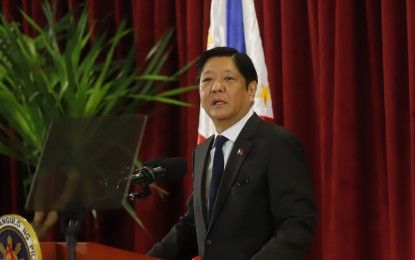Likened to a toy, the Constitution has become a favorite of all administrations – past and present – always on account of its economic provisions, which in recent years have undergone too many revisions already.
This is why it is no surprise that in the recent hearing of the Senate subcommittee on Resolution of Both Houses No.6 to amend the charter, three resource persons objected to amending the 1987 Constitution.
The resource persons said the economic provisions should not be made a lame excuse for the lack of foreign direct investments as this will further draw attention away from current problems, the Business Mirror reported.
During the hearing, the Bangko Sentral noted that the 11-month FDI net inflows from January to November 2023 suffered double digit contractions mainly from the “lingering impact of high inflation and low growth prospects globally.”
The resource persons – economist Bernie Villegas, former Commission on Elections (Comelec) Commissioner Rene Sarmiento and former Supreme Court Associate Justice Antonio Carpio – cited various reasons for the poor FDI inflow – but not the Constitution’s supposed restrictive provisions.
Villegas and Sarmiento were former members of the 1986 Constitutional Commission, which crafted the 1987 Constitution.
Villegas said the growing interest in recent years on agribusiness investments, including from local conglomerates like the MVP group should be one reason for government to cash in because it shows businessmen, both local and foreign, have found it lucrative to invest in agriculture.
He also mentioned that feedbacks he has been getting showed that those who want to invest in agriculture here do not need land ownership.
Sarmiento voiced reservations on Resolution No. 6 of the House and Senate, saying there are so many pressing problems in the country that should get priority.
He cited the need to “unlock the potential of Filipinos for the country’s economy to soar high.”
Justice Carpio cautioned against falling for the “false premises” that pin the blame for low FDI on the supposed restrictive economic provisions, the fact that “the Philippines today has one of the most liberalized regimes,” and the recently amended Public Service Act has opened wide the ownership of key sectors to foreigners.
Generation of renewable energy was recently opened to foreign ownership by a mere issuance of the Department of Energy (DOE), and retail trade and banking have also been liberalized, he noted.
He objected to presumptions that the Philippines has the most restrictive regime compared with its neighbors, adding that land ownership is not a “deal breaker” for most huge foreign investors.
He argued that what shuns foreign investors are the high cost of power, which for manufacturing accounts for 30 percent of operating expense, bureaucratic red tape and poor infrastructure.
The second hearing was supposed to be confined only to public utilities and public services, Angara said.
Senator Grace Poe said the Philippines has already made great strides in opening up the local economy and is already “open for business” with the Public Service Act and other existing laws allowing foreign investments in the country.
“We have opened up the economy. We have done so without violating or amending the Constitution. We did not need to convene a Constitutional Commission, Constitutional Assembly or a fake People’s Initiative,” Poe stressed.
Last January 18, the IBON Foundation said that the Marcos Jr administration’s reasons for amending economic provisions in the Constitution or economic Charter change (Cha-cha) are flawed.
Cha-cha will only bring more of the same foreign investment and liberalization that has stranded the country’s development for decades and left millions of Filipinos struggling amid a jobs crisis.
The group raised four main points on why economic Cha-cha is a non-solution and will only perpetuate the country’s problems:
#Chacha #CharterChange #Government #Constitution #OpinYon #WeTakeAStand
